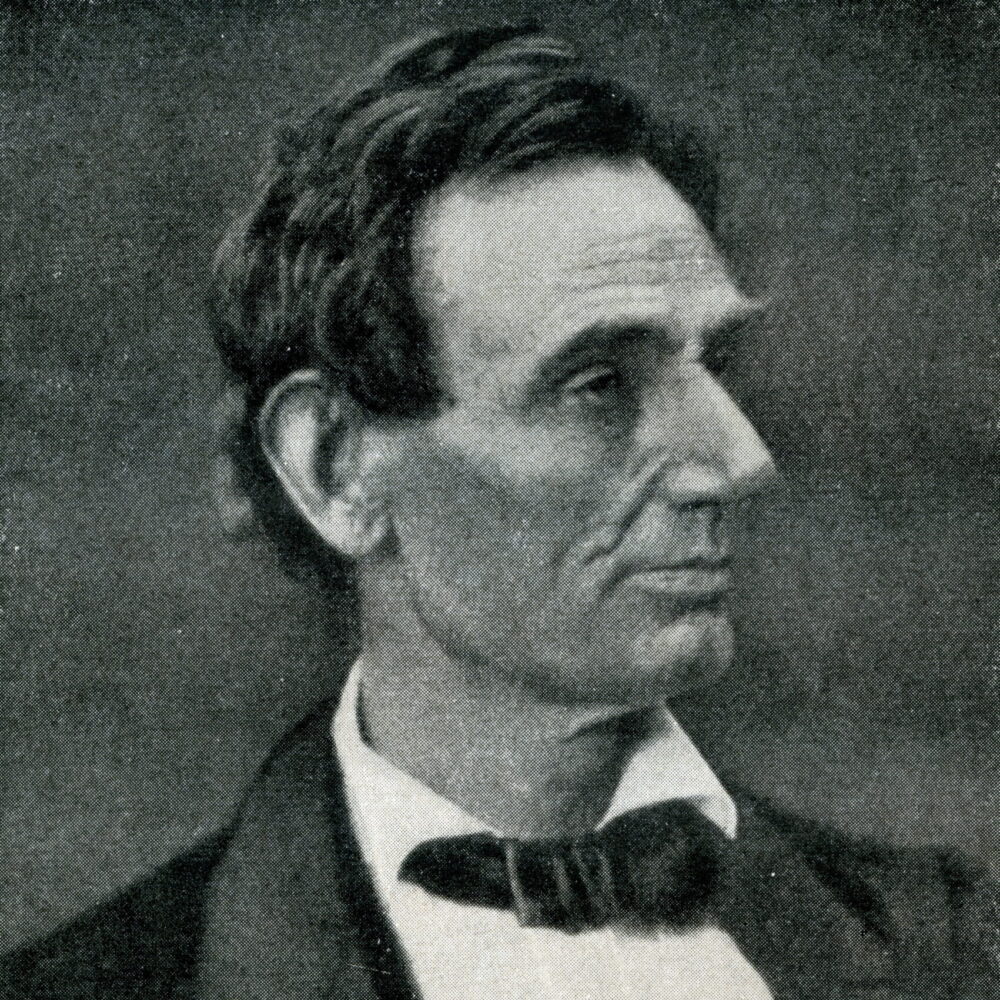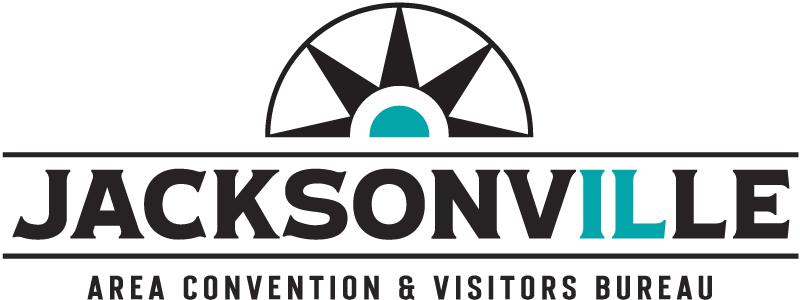Follow in the Great Emancipator’s Footsteps
Jacksonville is proud to be home of many Lincoln sites and two interconnected tours: the Looking for Lincoln wayside exhibits and the Voices of Jacksonville Audio Tour.

Looking for Lincoln Wayside Exhibits
These exhibits highlighting Lincoln’s ties to the community are noted with a Lincoln hat symbol. Each discusses Lincoln’s connection to the site and has a rubbing medallion to collect an impression, which will provide a keepsake for each stop. These exhibits are part of a larger state Lincoln initiative, with information at lookingforlincoln.org. On the Illinois College campus walkway at the east end of Mound Avenue, you’ll find a life-size statue of a seated Lincoln and his dog. This is a great place to begin or end your Lincoln tour and snap a commemorative photo.
Voices of Jacksonville Audio Tour
Each site noted with an audio symbol dramatizes a Lincoln story with an entertaining and educational audio interpretation. These are an informative and fun way to learn the local stories of Jacksonville’s Lincoln connections. Files may be downloaded on this page or at lincolninjacksonville.com and can be played on your mobile device or by using your vehicle’s Bluetooth connectivity. Some sites even have a radio broadcast of the audio. When you arrive at each destination, tune your radio to the noted frequency on the sign. CDs of the recordings are available at the Jacksonville Area Convention & Visitors Bureau at 310 E. State St., the Jacksonville Area Chamber of Commerce at 155 W. Morton Ave., and at area hotels.
![]() Indicates site has an interpretive wayside exhibit
Indicates site has an interpretive wayside exhibit
![]() Indicates site has an audio interpretation, via MP3, radio, or CD
Indicates site has an audio interpretation, via MP3, radio, or CD
Beecher Hall
Illinois College Campus
![]()
![]()
Beecher Hall is on the south side of the McGaw Fine Arts Center parking lot. The wayside exhibit is located directly north of Beecher Hall on College Avenue. Built in 1829-1830, Beecher Hall is one of the few structures remaining on the Illinois College campus that would have been familiar to New Salem friends of Abraham Lincoln, several of whom, including David Rutledge, William Berry, Harvey Ross, and William and Lynn Greene, attended Illinois College in the 1830s. In its early history, the building contained a classroom, library, chapel, and dormitory. In 1888, Beecher Hall was named after Edward Beecher, the first president of Illinois College.
David A. Smith House
1061 Grove St., SE corner of Grove and Park
![]()
![]()
David A. Smith, a Jacksonville attorney and colleague of Abraham Lincoln, had this two-story, Federal-style house built between 1852-1854. When Lincoln had legal business in Jacksonville, he used Smith’s law office as his headquarters. Records indicate Lincoln and Smith were associated with 68 cases as either co-counselors or opposing attorneys.
Governor Duncan Mansion
4 Duncan Place, centrally located in Duncan Park
![]()
![]()
Gov. Joseph Duncan, who served as governor of Illinois from 1834-1838, had this two-and-a-half-story house constructed between 1833-1835. According to tradition, Lincoln visited the Duncan home, given the fact Lincoln lived in nearby New Salem and Springfield during the time both men were members of the Whig Party. Lincoln served his first two terms as a state representative while Duncan was governor. Tours available.
Newton Bateman House
907 W. State St.
![]()
![]()
Newton Bateman, a well-known educator in Illinois in the 1800s and friend of Lincoln, lived in this Gothic Revival-style house in the 1850s. He was principal of what is believed to be the first free, public high school in Illinois, West Jacksonville District School, in the 1850s. While serving as state superintendent of schools, Bateman had an office next to President-elect Lincoln at the Illinois State Capitol in Springfield. The two men became friends in the months prior to Lincoln’s departure for Washington, D.C.
Lincoln and Slavery Mural
South Sandy Street
![]()
![]()
The mural is painted on the side of the building on Sandy Street at the southwest corner of Central Park. The wayside exhibit is located on the edge of the park in the southwest corner of Central Park. In 1856, Lincoln delivered a speech in the Morgan County Courthouse Park (now known as Central Park) sharing his views about one of the hotly debated topics of the day — the extension of slavery into newly organized territories of the United States. Joseph O. King, a local merchant, later recalled Lincoln’s stirring oratory: “He spoke in the courthouse park, and when he came out sharp and strong against slavery, I threw up my hat and shouted, ‘Hurray for Abe Lincoln for president of the United States.’”
1858 Senate Race
Northeast side of square
![]()
On Monday, Sept. 27, 1858, Lincoln arrived in Jacksonville by train from Springfield and was met by large delegations from Morgan, Cass, and Scott counties. They moved from the depot to the square, where Lincoln made one of his 63 speeches given across the state contesting for the U.S. Senate. Lincoln was said to have spoken for two-and-a-half hours.
James Jaquess House
339 E. State St.
![]()
![]()
James Jaquess, the first president of the Illinois Conference Female Academy (later MacMurray College), once lived in this house. A Methodist minister, Jacquess first met Lincoln when he was preaching the gospel and Lincoln was practicing law in Central Illinois. During the Civil War, Lincoln entrusted Jaquess with important missions. In 1863, Jaquess met with Confederate officials to discuss ending the war. The following year, Jaquess met with Confederate President Jefferson Davis, who declared the South would accept peace only if it could remain independent.
The Civil War Governor
East State Street
![]()
Richard Yates, the first graduate of Illinois College, shared strong views with Lincoln. They both supported the Whig Party and strongly opposed Stephen A. Douglas. Yates was the Radical Republican governor of Illinois during the Civil War. He made trips to visit and encourage troops by supporting the sick and wounded. Therefore, he became known as the “Soldier’s Friend.” As the war drew to an end, Yates became a member of the U.S. Senate.
Whig Rivals and Friends
500 E. State St.
![]()
In 1831, John J. Hardin moved to Jacksonville. Hardin and Lincoln served in the Black Hawk War. Both were lawyers and Whig politicians who became rivals for leadership of the party. Hardin was said to have saved Lincoln’s life by rushing to an island near Alton to stop a duel between Lincoln and Gen. James Shields, at whom Lincoln poked fun in a published letter. Hardin persuaded the men to come to a compromise.
General Benjamin Grierson Mansion
852 E. State St.
![]()
![]()
Civil War hero Gen. Benjamin Grierson once called this large brick house home. In the mid-1850s while living in Meredosia, Grierson joined the new Republican Party and became friends with Lincoln, one of young party’s leaders. In 1860, Grierson, an accomplished musician, wrote campaign music for Lincoln’s first presidential campaign. The following year found Grierson answering President Lincoln’s call to service in the Civil War.



